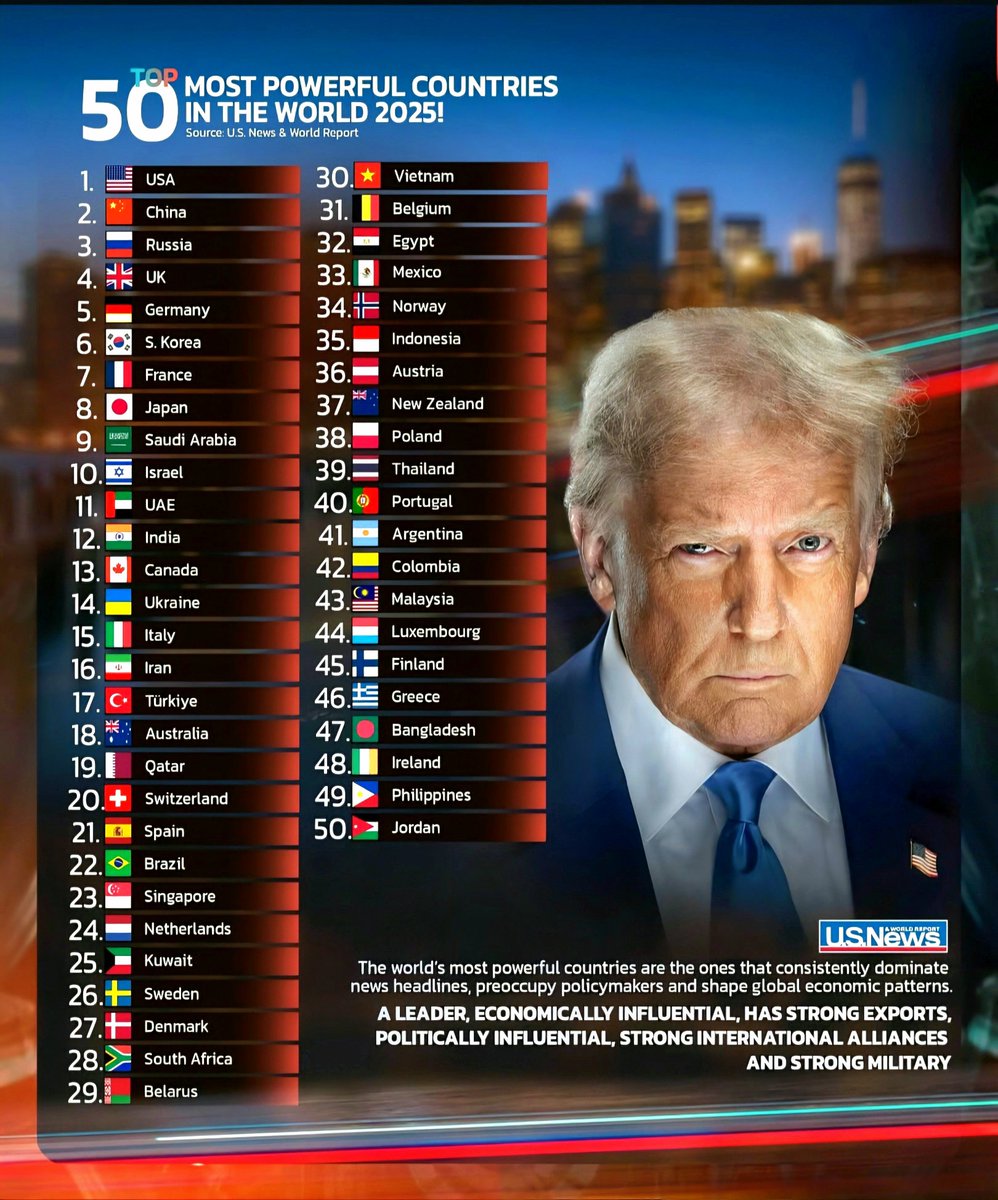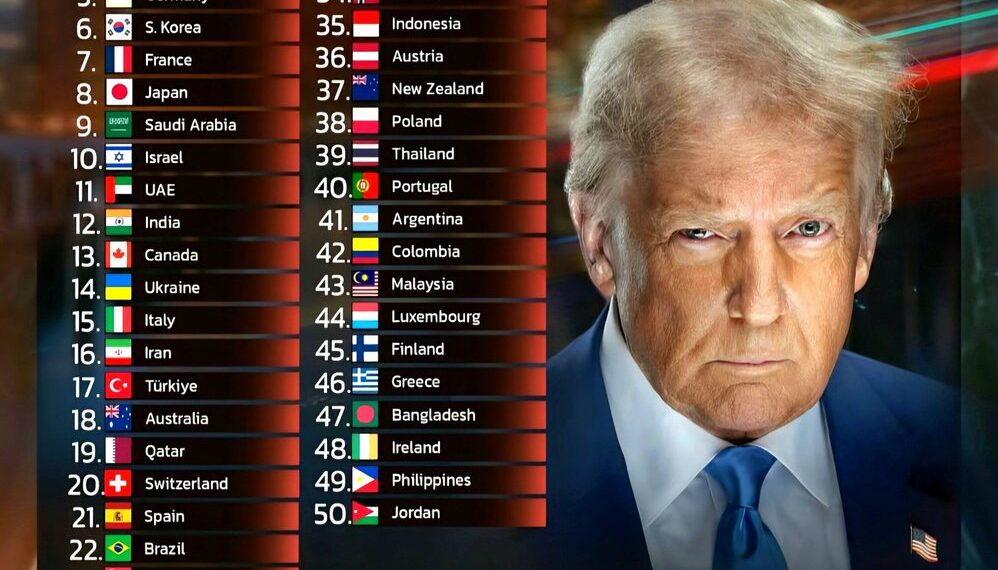Select Language:
The Most Influential Countries According to Global Power Rankings in 2025

1. The United States Maintains Its Global Dominance
In 2025, the United States continues to stand as the world’s preeminent superpower. Its extensive military capabilities, innovation in technology, and resilient economy keep it firmly at the top of global influence. The nation’s leadership in artificial intelligence and renewable energy sectors also solidifies its strategic significance across geopolitical landscapes.
2. China’s Rapid Rise Reinforces Its Superpower Status
China’s influence has grown exponentially, driven by expansive infrastructure investments, technological advancements, and assertive foreign policy moves. Its Belt and Road Initiative has expanded its reach into Africa and Southeast Asia, making it a key player in global commerce and politics. The country’s military modernization efforts further bolster its regional and global standing.
3. Russia Reinforces Its Military Might and Strategic Alliances
Despite economic fluctuations, Russia remains a formidable force due to its significant military capabilities, energy resources, and strategic alliances. It continues to leverage its nuclear arsenal and cyber warfare capabilities as tools for asserting influence, especially in Eastern Europe and Central Asia.
4. India’s Economy Grows Steadily, Increasing Regional Influence
India’s economic expansion has propelled it into the upper echelons of global power. Its large population provides a vast labor force and an expanding consumer market. The nation’s investments in technology, defense, and infrastructure have resulted in improving diplomatic relations across Asia, Africa, and beyond.
5. Japan Sustains Its Technological Edge
Japan maintains its role as a technological leader, particularly in robotics, manufacturing, and electronics. Its stable political environment and resilient economy support its ongoing influence, especially in the Asia-Pacific region, where it remains a strategic partner for many Western nations.
6. Germany and the European Union Strengthen Their Economic and Political Clout
Germany continues to be the economic powerhouse within the EU, shaping policies and setting standards that ripple across member states. The EU as a whole remains a significant geopolitical entity, advocating for climate action, digital sovereignty, and strategic autonomy in global affairs.
7. United Kingdom’s Resilience Amid Global Shifts
Post-Brexit, the UK has diversified its international partnerships, forging stronger ties with North America, Africa, and Asia. Its financial sector, innovation hubs, and defense industries bolster its status as a global financial and diplomatic center.
8. France’s Diplomacy and Defense Policies Expand Its Global Reach
France has increased its military engagements in Africa and the Middle East, asserting a leadership role in peacekeeping and counter-terrorism efforts. Its emphasis on sustainable development and technological innovation enhances its international influence.
9. Brazil’s Growing Regional Power
As the leading economy in South America, Brazil is investing in sustainable agriculture, renewable energy, and infrastructure projects. Its role in regional politics and natural resource management positions it as a key player in Latin America.
10. Canada and Australia Maintain Strategic Global Presence
Canada’s strengths lie in its natural resources, technological innovation, and diplomatic networks. Australia continues to expand its political and economic ties with the Asia-Pacific nations, emphasizing security and trade partnerships.
Additional countries on this list include South Korea, Italy, Spain, the United Arab Emirates, and others, each contributing uniquely to the overall global power dynamic.
In 2025, the landscape of world power remains ever-changing, influenced heavily by technological innovation, military strength, economic stability, and strategic alliances. While the United States continues to lead, emerging powers like China and India are reshaping the global hierarchy at a rapid pace, bringing new dynamics to international relations.





